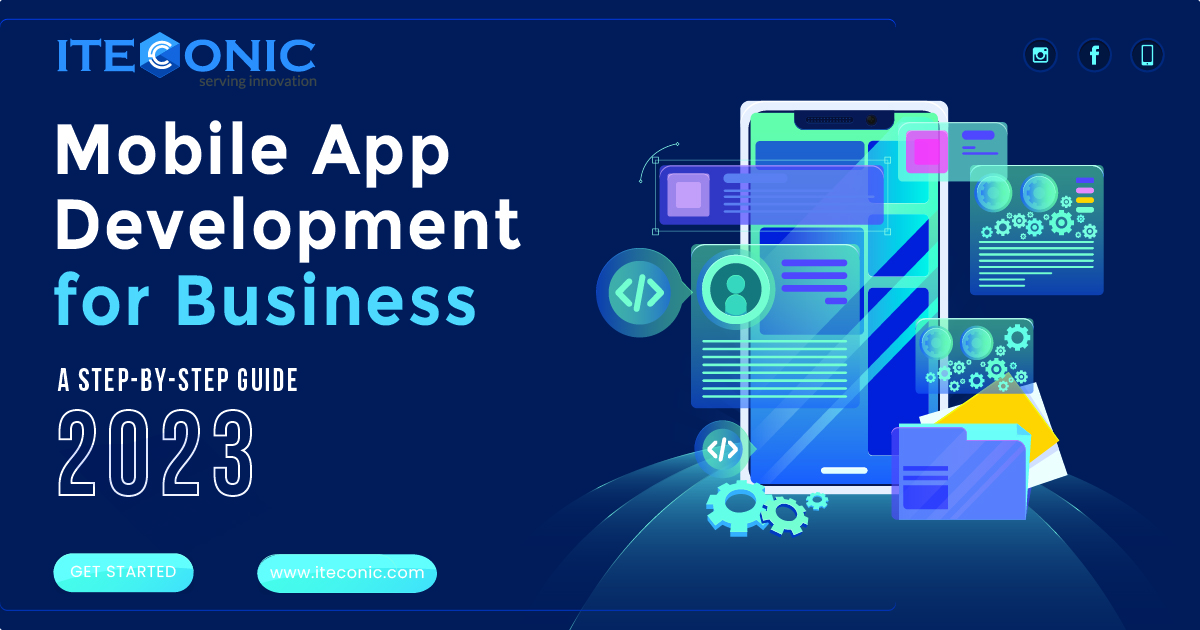Mobile App Development for Business – A Step-By-Step Guide (2023)

The market is growing, and so does mobile app development services expanding their grounds at a tremendous rate. The stats show the incline of 70% digital media time is widely occupied by smartphones – Android and iOS. As people love to consume their spare time on social media apps, gaming apps, or try to shop online, this intends to increase their screen time. This shows how rapidly the mobile app development companies are growing by intensifying their command in the industry.
Investing your money in building mobile apps is a new secret ingredient for entrepreneurs and businesses. They get a wide spectrum of customer reach by building a custom mobile app that resonates with their requirements.
You can take an example of a few popular mobile apps such as Uber, WhatsApp, Snapchat, TikTok, LinkedIn, Netflix, and the list still goes on. These applications revolutionize the industry by adding up value to user’s daily life.
There are various organizations that offer the best mobile app development solutions, but the problem is whom to choose. For that, look for the best mobile app development company that can offer proper planning, execution, and cost-effective prices, with customer-centric design.
An Overview of Mobile App Development in 2023
With the ever-evolving popularity of custom mobile apps, the need to get the ideal mobile app development services is growing. However, the biggest concern is to manage the mobile app development cost. Considering the average cost of mobile application development services, it lies in between $120,000 to $530,000 based on the functionality and how optimized you want your mobile app to be.
According to the Statista report, by 2021 (third quarter), approximately 27.8 billion apps have registered in Google Play Store, while Apple App Store covers almost a figure of 8.3 billion downloads. These numbers are ideal for projecting the facts of how much popularity the mobile app market is getting.
In this guide, we will comprehend and are going to discuss all the main features of the mobile app development process hold – including its costing, platforms, and stages. But firstly, let’s understand;
What is Mobile App Development?
Mobile app development is a simplified process of creating or developing mobile apps that can operate on a smartphone screen – iOS and Android. There are multiple applications that can be preinstalled with your new mobile device, in contrast, the other ones need to be downloaded from the device’s store – Google Play Store (for Android users), App Store (for iOS users), or from a mobile web browser.
If we talk about the process of application development which most of the Mobile app development company follows, then it would be:
· Developing a strategy bundle of how application works, including its functions and designs
· Applying frontend and backend services, such as implementing data access and tools
· And finally, the testing part of the application on targeting devices
While, in the app development process, it is crucial to develop robust mobile apps that focus on hardware requirements, theme/designs, screen sizes, etc.
If we consider the scales and graphs of the active users on mobile apps worldwide, it surely escalates. This is when the need for mobile app development company also blooms, as businesses want reliable mobile apps that aim to meet up user’s expectations by delivering real-time user interfaces.
Let's have a look at these stats:
Source: Sensor Tower
By the end of 2025, the influence of mobile app marketplace revenue is going to touch the figures around $613, estimated by the Statista Digital Market Outlook. While, the capacity of mobile app downloads will soon touch the figure of 299 billion worldwide, by the end month of 2023.
What are the Top Platforms for Mobile App Development?
In a list of popular mobile app development platforms, Android, IOS, and Cross Platforms/Hybrids are the ones offering maximum tools while developing a mobile app. Right from building your application from the start to adding a last straw in the entire development process, you can rely on these platforms.
Let’s understand more about these amazing application development platforms that most of the mobile app development companies use –
Android – The Android OS is one such popular platform, sponsored by Google. Primarily it is working to offer a seamless touchscreen mobile device, including tablets and smartphones to increase user engagement. The Android mobile OS supports users to run multiple apps at the same time, allowing them immense flexibility.
iOS – Unlike Android OS, the iOS operating system is considered to run only on iOS operating systems, which includes iPhone or iPad. The best companies offering mobile app development services leverage to build mobile apps for App Store by using iOS Software Development Kit.
Hybrid / Cross Platform – Hybrid or Cross Platform apps are the ones that can blend on both native and web programming capabilities. By using Hybrid mobile app technologies, it’s easy for developers to build apps for multiple OS on a single platform. Companies who want to reach a high potential audience base with a minimum time-span, can switch to hybrid mobile applications.
Technologies to Cover by Top Mobile App Development Companies
If we talk about mobile app development technology, then typically, it refers to the tools, components, languages, and frameworks that are used to create applications for your business. Be it a native Android or iOS app or to seek for a cross-platform app, you’ll need to familiarize yourself with the trending frameworks and technologies used to power up your app.
Drop-down is a list of a few top mobile app development technologies you should know to touch the 2022-23 market trend.
React Native – Powered by Facebook, React Native is the best-in-class technology that you can use to build native user interfaces. This can be used in developing both iOS and Android apps. Being the game changer for the mobile app development process, React Native allows recapitulating lightning speed without compromising the overall user experience.
Flutter – In the list of the most advanced technologies and tools for application development, Flutter would be the next to count on. For a limited time period, one can use the application software free on a trial basis, and after that, they need to pay for the services to continue further.
Ionic – This modern mobile app development framework is known to bring a seamless app experience to the table. Ionic proffers the easiest way to develop cross-platform mobile apps that can easily dominate the 2023 market.
Xamarin – Xamarin offers the best state-of-art experience, as the software offers a plethora of tools and libraries to cater the need of building applications for tvOS, macOS, Android, Windows, and iOS.
Step-By-Step Mobile App Development Process You Should Know
Looking forward to building your own application? Then you should know the in-depth of the mobile application development process. As the latest trends fall to hold the implication of business mobile apps, it is somehow very crucial to understand the step-by-step approach to how the entire process works.
The following are the progressive steps that every second mobile app development company follows globally.
Ideation & Research Work
After getting a basic idea related to your app, now you need professionals on board. The best mobile app development companies will work to develop a complete strategy by analysing these small points – demographics and your buyer’s behaviour pattern.
Planning Would be Next
Once you get a good understanding and enough details about what’s the purpose of the application and what the audience needs to cover, you can start planning. This phase includes several details like setting a budget, creating a proper timeline, identifying your needed resources and so on.
Designing and Developing
Next on the list would be the designing part, as here, the designer needs to choose the best user interface to deliver maximum UX through the application. Color schemes or layouts would definitely enhance the overall look of the app.
While, the designing phase implements to count the actual code of the application. Coding would be a complex process to execute and without having a backup of a strong experienced team of developers, you can achieve great results.
Next is Testing
Now that your mobile app is developed and ready to launch, it needs to be tested first. This will ensure the application is bug and error free as it works well as intended.
There is an entire end-to-end mobile app testing module, which holds up almost 6 steps:
· A developer is required to jotter down all the cases and develop a test plan.
· Next would be deciding whether to run automated or manual tests.
· Define different functionalities test cases.
· Go for testing to detect any pattern of outcomes.
· Beta testing to analyze application performance.
· Use major tools to run security and compliance tests.
Launch the Application
If everything goes well, launch the mobile app on platforms like Google Store and App Store. Well, this would be the final step but the most crucial one.
Don’t Forget Post-Launch Process
After deploying the application on the relevant app store, a continuation of support to offer major updates or bug fixes is imperative. In the following trait, a promotion strategy for users is also vital to make your mobile app a big hit in the market.
What are the Top Trends Currently Ruling in Mobile App Development?
Trends are important, and people who will gel up with the latest trends can easily find their way to success. Same in the case of the mobile app development industry, several research indicates the market is going to expand by $44.3 trillion by the end of 2027. Well, the reason for this blooming mobile app development trend would be –
· Technology advancements
· Upward customer demand
· And better user experience with enhanced features
Below-neath are the top 3 mobile app development trends that are ruling 2023.
1. IoT App Integration
IoT refers to the Internet of Things, is a new concept that grabs the eyeballs. The technology is known to improve the everyday life of users by introducing next-gen apps that can connect your smartphone with smart home technology.
The best example for IoT apps would be adjusting your home-installed ac with your mobile remote. Tons of other smart gadgets like refrigerators, lights, and thermostats can also be managed easily, just by downloading an application on your smartphone.
2. Apps for Flip Phones
In the market of foldable mobile devices, Samsung surely holds its position secured by clearly changing the idea of how smartphones should look and feel. Other companies like Huawei, and Motorola are also expanding their dominance, but the real task would be designing apps that run smoother on foldable phones.
Considering the facts shown by the Statista report, 2023 is a big year for foldable phones, as the shipment is expected to cross 50 million units. Hence a big task is coming on the way for mobile app developers.
3. 5G Technology
The rollout of 5G has already created a buzz in the market, as everyone is looking to use the technology on an immediate basis. For developers, it is surely going to bring new changes, as the whole idea of how mobile apps work is dominated by the user experience.
Take this graph a consideration and have a look at how mobile app development companies need to bring their best in the 5G industry.
To Conclude Everything
Building mobile apps is a need of technology, as companies want to simplify the user experience. This would create a high demand for mobile app development services, and offering the best solutions is a need for every company that is in this business. Meanwhile, several pioneering web and mobile app development companies are there to offer their best practices and services, and ITEconic is one of them.
You can ask for a professional app engineer’s advice to bloom your business model by introducing an influential app on scale.
Frequently Asked Questions
Q. What is the importance of custom mobile apps?
Data security and seamless integration would be the first pick that states why custom mobile apps are important. However, a few more points you can also include:
· Helps to get long-term support
· Maintenance of your application is vital
· High scalability with competitive advantage is needed
Q. How to choose a mobile app development platform?
While selecting a mobile app development platform is crucial. You must first understand the needs, target audience, and security implications you are looking to add on your mobile application. And once it has been decided, you can choose one of the mobile app development platforms, such as Android, iOS, Cross-platform software, etc.
Q. What are the 2023 trends for mobile app development?
Technology like Cloud Computing Integration, Beacon Technology, Mobile Commerce, Chatbots, and Artificial Intelligence is trending in 2023.
.jpg)
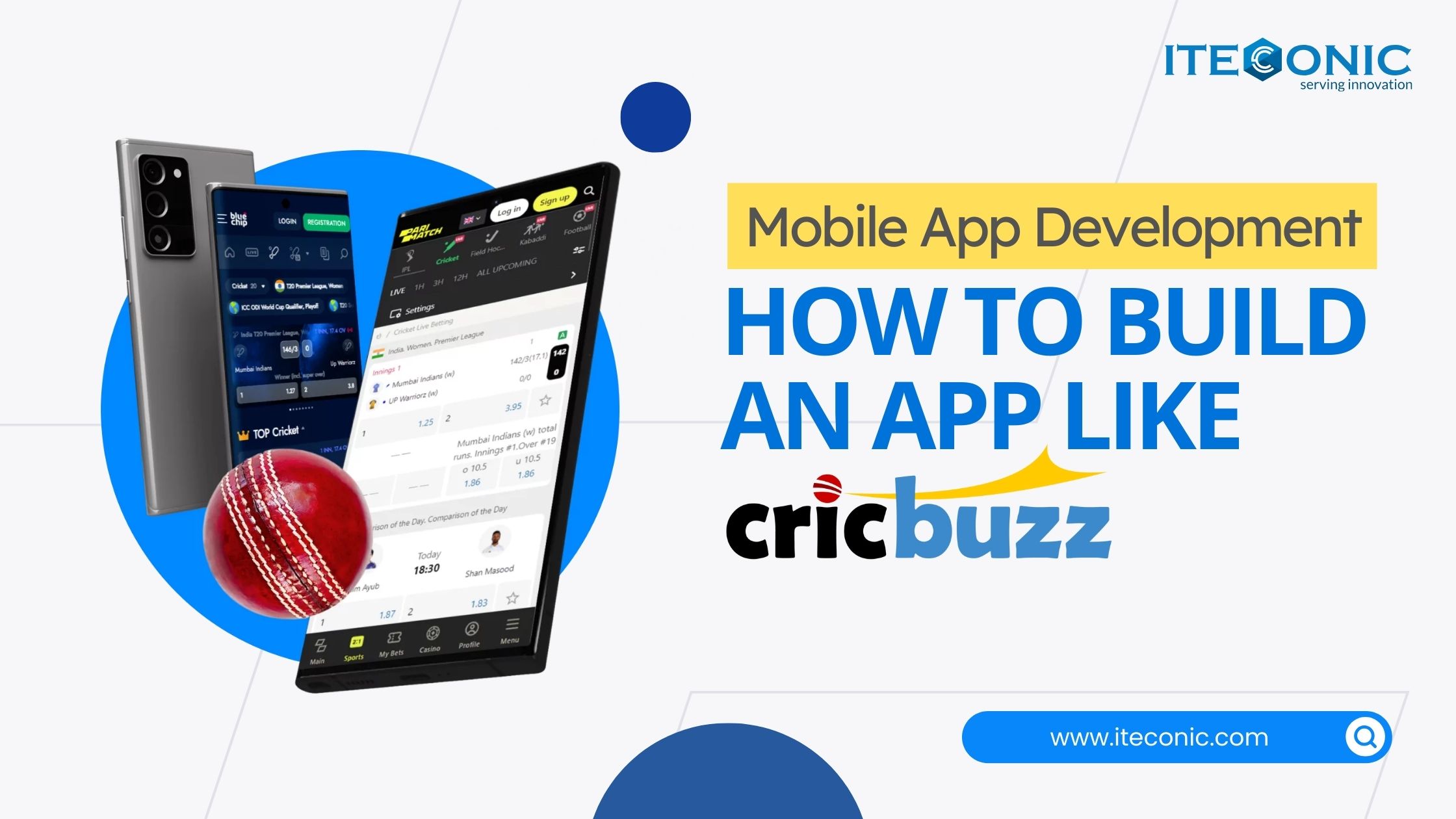
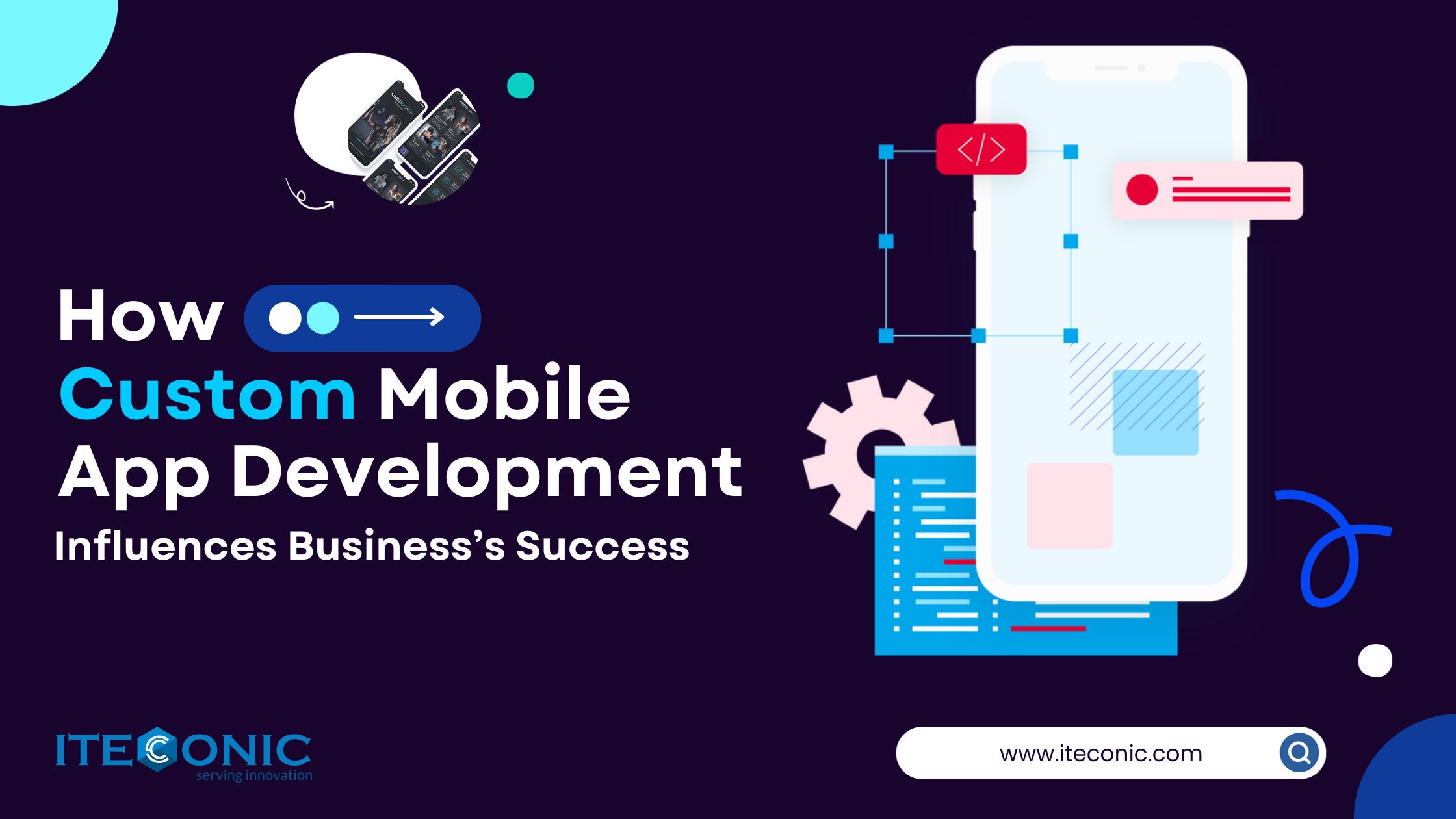
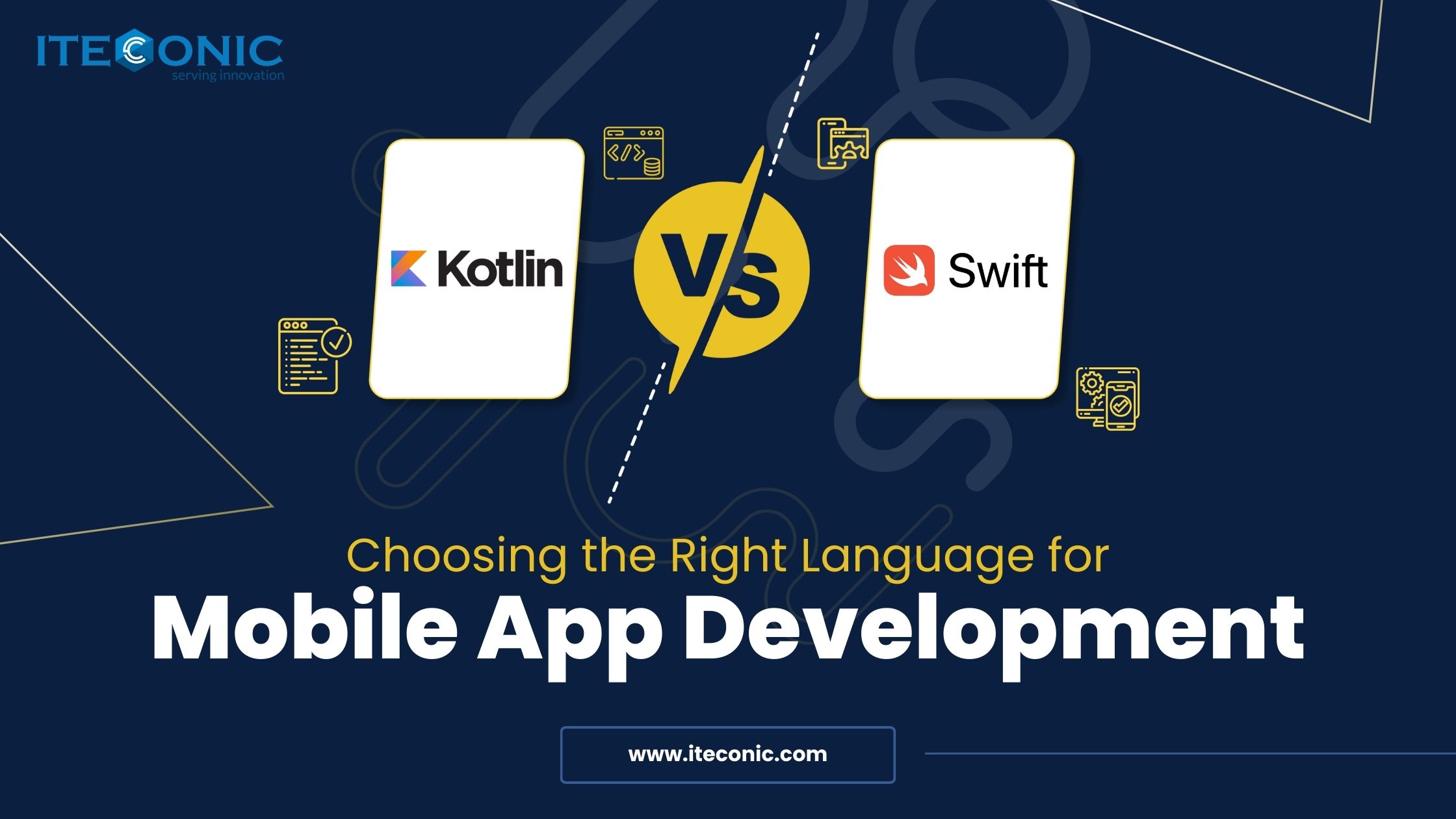
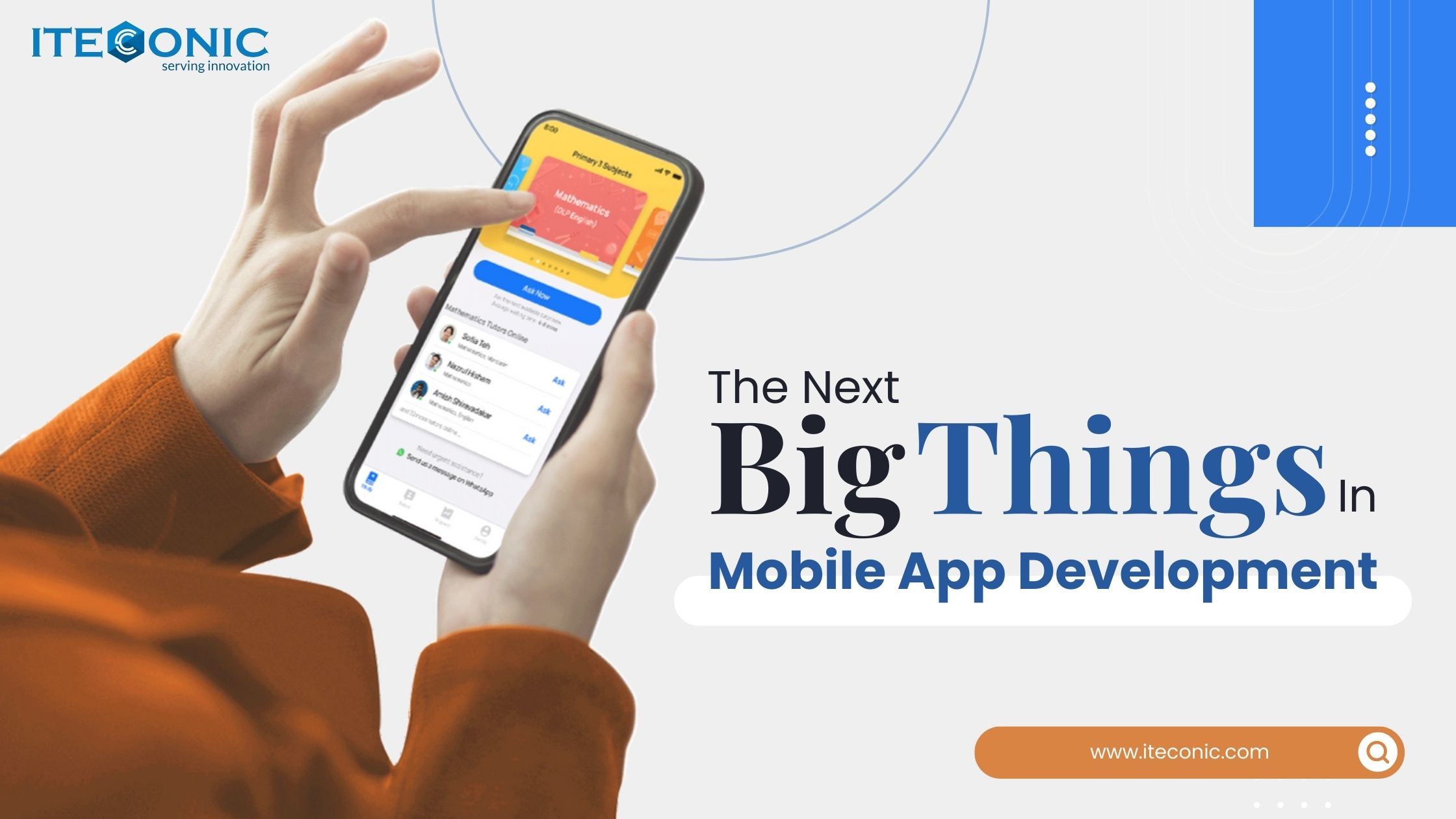
.jpg)
.jpg)
.jpg)
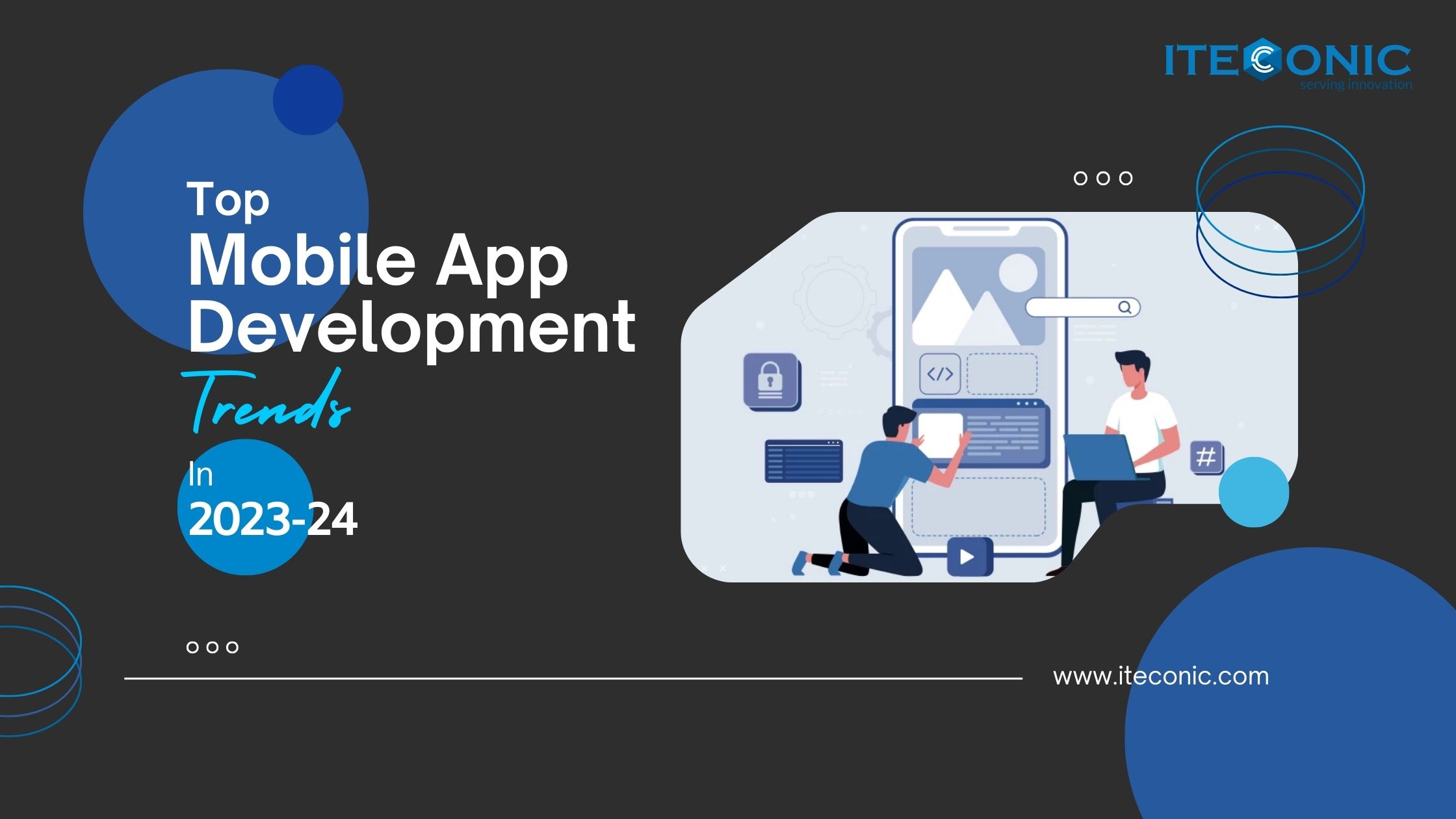
.jpg)
 (1).jpg)
.jpg)
.jpg)

 (1).jpg)

.jpg)
 (2).jpg)
.jpg)
.jpg)
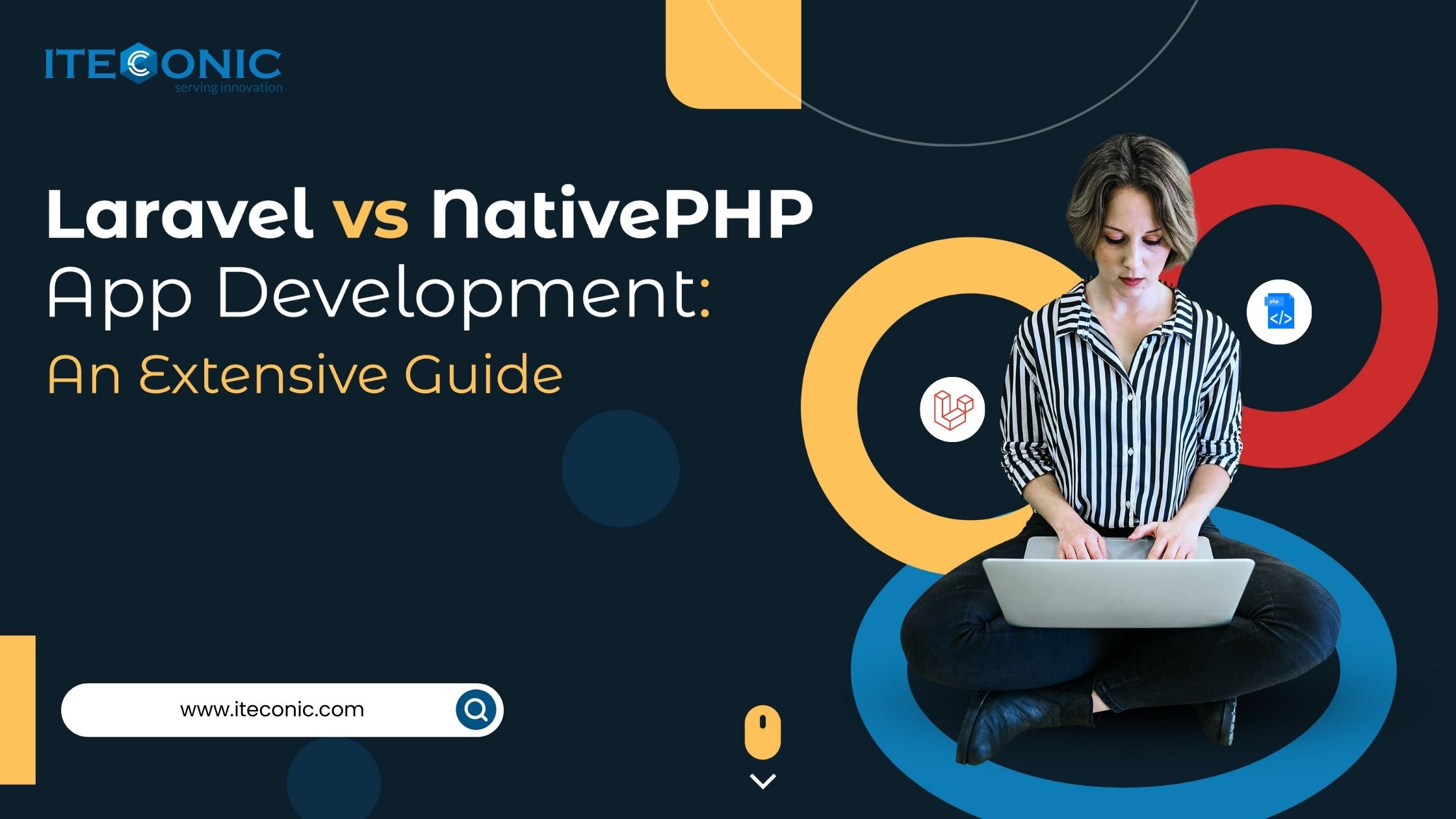
.jpg)
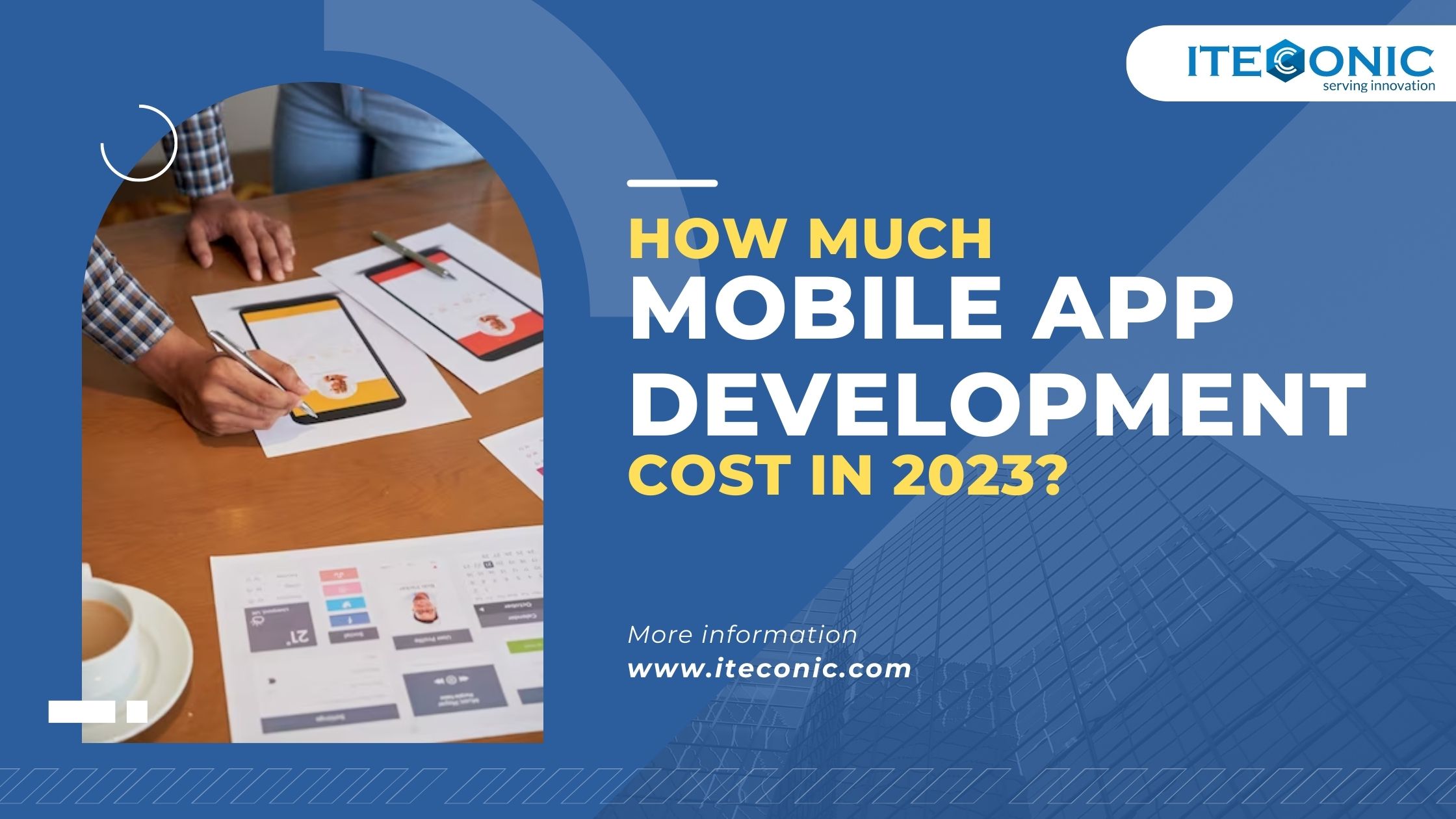

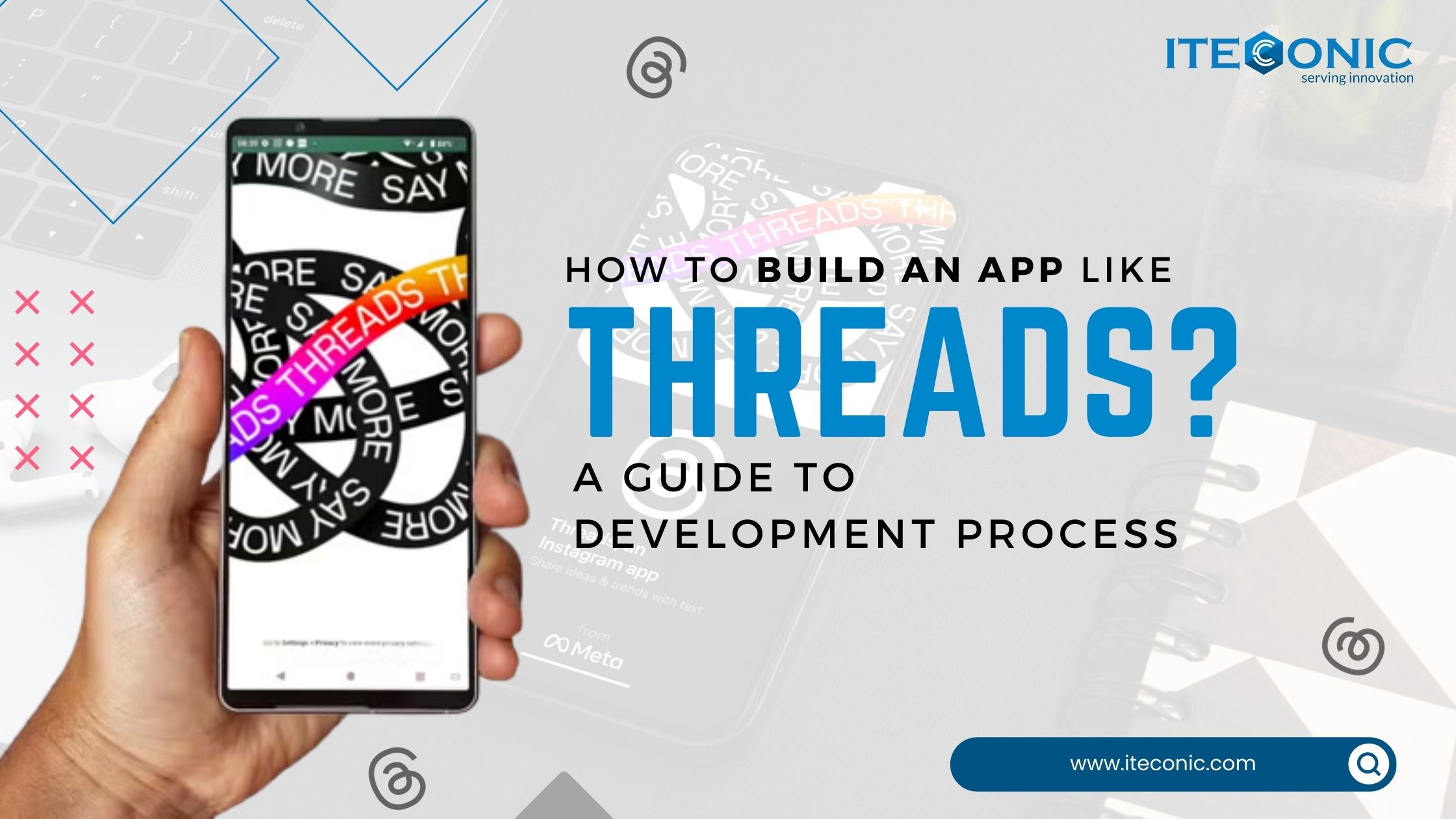
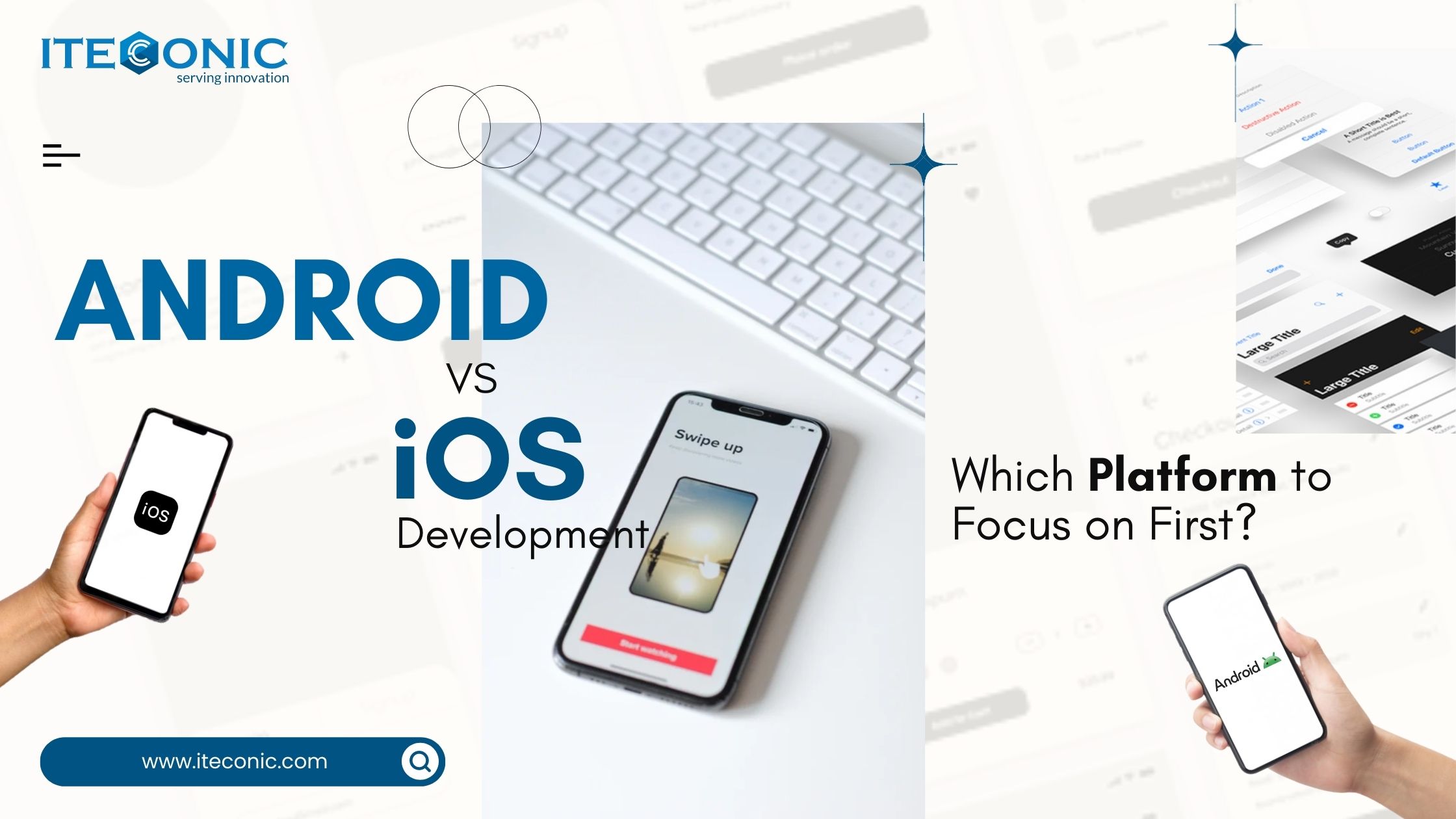

.jpg)
.jpg)
.jpg)

.jpg)
.jpg)
.jpg)
